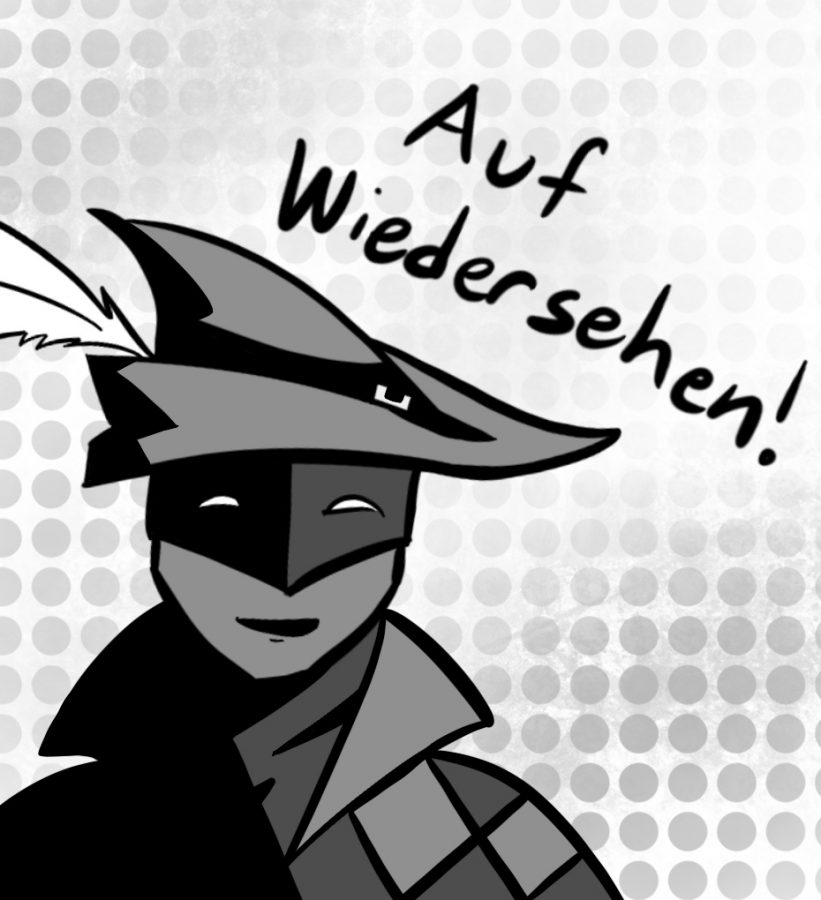Auf wiedersehen, German
The German major and minor will no longer be offered at Hamline.
March 10, 2021
Hamline’s mascot owes its name to the ancient German legend of the “Pied Piper of Hamelin,” and the university’s oldest overseas connection is with Germany’s University of Trier. Yet, come fall 2021, Pipers will no longer be able to declare a German major or minor, because the program is being phased out.
“[During the 2016 program review, the modern languages faculty] argued for the continuation of our German program,” said Modern Languages and Literatures Department chair Shannon Cannella. “The recommendations that came back from the dean’s office… was that we sunset German, but no timeline was given.”
When only four students registered for Beginning German in fall 2020, the dean’s office said that this was too small a number to merit a class, so Beginning German was canceled. Though Cannella and her colleagues had thought that they could wait until 2021-22 to start the sunsetting process, they realized they would need to begin phasing German out a year earlier than planned.
“As long as the students enrolled in our courses, we kept offering the courses, and the courses kept getting approved… even though every semester there was a discussion, do we have enough students to continue,” Cannella said. “[The cancellation of the Beginning German class] meant that the whole program is going to begin that phase-out this year, rather than continuing Beginning German with only four students and helping it limp along for one more year.”
The German major and minor are currently taught entirely by adjuncts, which has been the case since 2016. 2019 graduate Hannah Coleman-Zaitzeff, who minored in German, praised the adjunct faculty she learned under but said that the lack of authority given to them by the university constrained her studies in many ways.
“My adjuncts were barred from [teaching multiple] classes, leading independent studies or putting in place new and exciting opportunities on campus for us,” Coleman-Zaitzeff said. “I was able to take an independent study under an adjunct faculty, which took a lot of arguing to get approved in the first place, but soon following, [Modern Languages faculty] pointed to ACTC as the only way to achieve my degree.”
Coleman-Zaitzeff initially planned to major in German, and in fact chose Hamline partially for the German program, but the program’s small size meant classes often conflicted with her double major in another small department. She attempted to fulfill the major through the Associated Colleges of the Twin Cities (ACTC), a consortium of private liberal arts colleges in the Twin Cities that provide students the opportunity to cross-register for courses not available at their own institution. But Coleman-Zaitzeff had to drop the course due to unreliable transportation after the discontinuation of transit between ACTC institutions.
“I would not have chosen Hamline University if someone was upfront with me about the status of the German program,” Coleman-Zaitzeff said. “I believe the language department is great, but the administration is actively killing them.”
Cannella asserted that the Modern Languages and Literatures Department is committed to providing courses to current German majors and minors until they graduate, and said that future Pipers will have the option of a Flex Curriculum major with ACTC courses if they wish to study German. Introductory-level German courses may still be held if student interest is sufficient.
“We’re planning on offering Beginning German I in the fall,” said adjunct German professor Habiba Hadziavdic. “[Students should] register as soon as possible and in doing so, show their interest and intent.”


Rueben Hansen • Apr 13, 2023 at 5:09 pm
As a 1979 Hamline graduate and German major, I find it almost impossible to believe Hamline no longer offers either French or German as majors.
I understand that a small institution like Hamline needs to focus on what can do best at….but no German major?
A sad commentary on traditional liberal arts education.